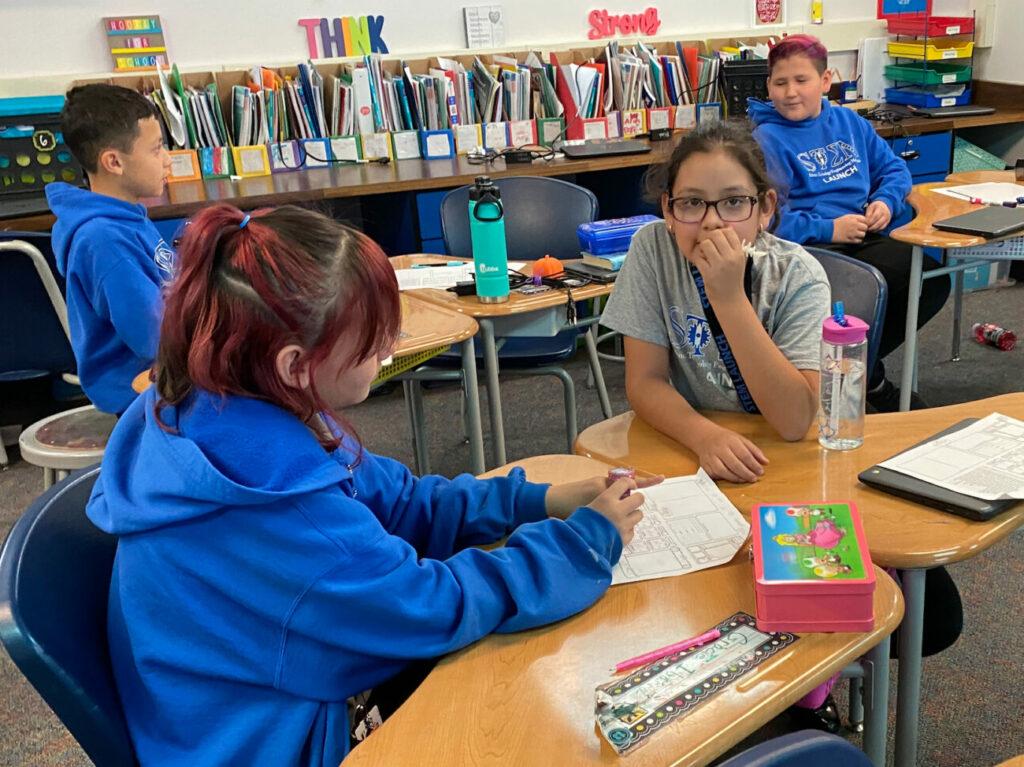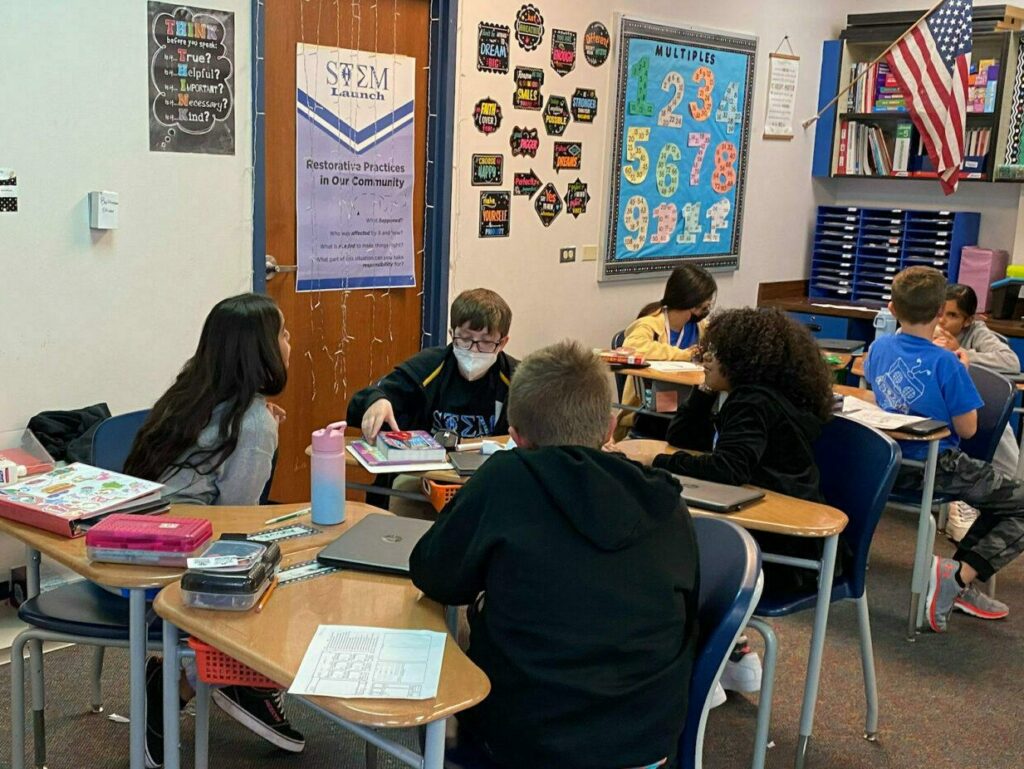This fall, Pop Culture Classroom piloted a new workshop on building character — and characters! — using Dungeons & Dragons™ and other tabletop role-playing games.
By Rachel Brazell with Chris Burley
November 29, 2022
It’s hard to deny the value of social-emotional learning in a complex and changing world. Or the increasing popularity of tabletop roleplaying games (TTRPGs) like Dungeons & Dragons (D&D). Or the potential for engaging, substantive learning using TTRPGs.
What if we could use tabletop role-playing games to help students learn the value of character and the traits that help shape our stories and interactions with one another?
That’s the question Pop Culture Classroom outreach instructor Faith Ojebuoboh explored in a three-day customized D&D -style campaign based on a language arts unit, with 5th grade students at Colorado’s STEM Launch School in Thornton.

Beginning a Great Adventure
Ojebuoboh has a special interest in the use of role-playing games to teach social-emotional learning. She is not only an outreach instructor for Pop Culture Classroom, but also a mental health counselor and someone who’s played — and run — TTRPGs for years.
“TTRPGs have a great structure that already lends itself to this process,” continued Ojebuoboh. “TTRPG’s are a safe place to try a skill, fail, and then deal with safe consequences.”
“[TTRPGs] allow us to also work on communication skills, problem solving, decision-making, critical thinking, and cooperation,” continued Ojebuoboh. “The medium is perfect for social-emotional learning!”
Building Character(s) with Role-playing Games
During the workshop, students learned about how personal traits and characteristics can impact a narrative and social interactions using the collaborative play of a TTRPG.

“Social-emotional learning is a great tool for learning material and increasing skills that last outside of the classroom,” said Ojebuoboh. “In this case, we worked on better understanding characters in writing and reading, and through the use of critical thinking, problem-solving, sharing, and collaboration.”
“TTRPGS can also increase our literacy and math skills [since] we have to read to learn the rules and do some basic addition and subtraction [during character creation and gameplay].”
On day one of the workshop, students developed their characters by assigning number values and bonus points to a series of characteristics including strength, wisdom, dexterity, and charisma. They also chose the skills their characters would have — skills like perception, performance, or sleight of hand.
When students played, those traits could be beneficial or harmful — depending on the campaign scenario that Ojebuoboh created for the students.
For instance, when the players were attacked by wolves, during day two’s gameplay, a player with animal handling skills could try to protect their teammates by o feeding the wolves rather than fighting them. In other situations, players with higher charisma skills could convince non-playable characters to give them helpful information about the world, in turn helping their less-skilled party members.
“I really hope that this workshop can help students find a love of playing tabletop games, and that PCC teachers like myself can give them the basics to find a group and play,” said Ojebuoboh. “I also hope that they can really exercise creativity and critical thinking skills, as those are always needed no matter what you are doing! ”
Help Support Our Work
To provide innovative learning experiences like this one and to keep our downloadable educational comics, graphic novel teaching guides, and other resources free and accessible, we need you!
Pop Culture Classroom offers a range of student workshops at schools, libraries, and community centers across the Colorado Front Range. Will you help support this and other programs to inspire, educate, and connect using the power of pop culture?
- $35 Buys Workshop Supplies for Teachers and Students
- $140 Covers 1 hour of Programming at a Colorado school
- $300 Creates a Script for 1 issue of Colorful History
- $1,400 Pays for Art and Lettering of 1 issue of Colorful History


